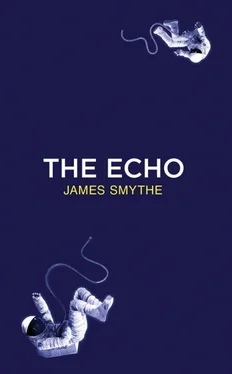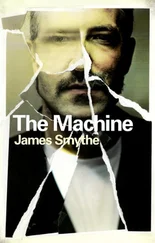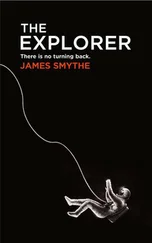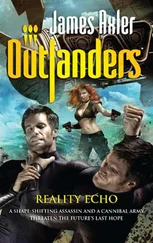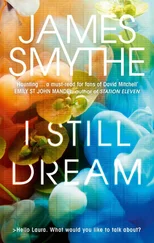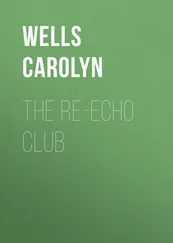The UNSA panicked then. They worried. More probes were sent, and they were lost as well. Everything there was lost. One of them, one of the people who approved the funding – he was the most desperate, his hands ready to sign funds to us before we even finished our first presentation – asked us what would happen if it reached the Earth. We said, We don’t even know what it is, yet. Let us find out. We showed them a map we’d made, and expressed in real terms the actual scale of what we were dealing with. They didn’t take long to reach the decision of a green light, on one condition: one of us would need to be up there, knowing what we were looking at. The other would stay at home and guide the operation from there.
One job sounded like what we had always wanted to do, the excitingly childish dream; the other somehow more prosaic role. Drier, certainly. We played for it. We have always played for it. Whoever won was going onto the ship, up into space, to the anomaly, the prize of this thing. It was decisive, my victory: I had fought for it, and I deserved it. I never gloated, because that wasn’t our way. We just got on with it. We planned the entirety of the trip meticulously. No room for error, and no error likely. Tomas framed the plan, seventeen printed A4 sheets of times and dates, and mounted it on the wall of our lab. I asked him why he framed it, and he said, It’s not going to change, so I might as well.
Our launch time has been set for over a year now. I look at my watch and I’ve got four hours. In two hours I have to report for duty, then I have to be sedated and strapped into my bed, and I will be made to sleep.
When it is time, we will all go into that darkness out there.
Tomas was first born, by three hours and forty-one minutes. I was if not a surprise, then a miracle, because they had no idea I was stuffed in there as well. The people who delivered me, who were not real doctors, started to tell my mother to rest rather than to keep pushing, because her job was done. Her baby, Tomas, had been born, and with that they assumed she was finished. My mother was a hippie, back when such a name meant something. She was into free love or whatever, and she was eighteen and had run away from home and lived on a reservation near these marshlands in Sweden and she didn’t believe in doctors. (We would argue, as she lay dying in the hospital bed that we forced her to lie in, that at least they fucking existed in the first place, so it wasn’t something she could contest. I don’t believe in them, or anything that they do, she told us, and we said, Well they’re real! And they could have saved your life! Instead of doctors, she believed in angels and psychic energies and trees that breathed at night.) Because of this lack of faith – a denial of scans and tests performed before she slid into her birthing pool and spread her thighs – she didn’t know that I was coming. I was a miracle. Tomas was abandoned, pushed to one side as they held me aloft. We are not equal, not completely. He has a birthmark stretched across half of his face, a wine stain that truly was there from birth. As she cradled him before I appeared, she apparently reasoned his mark away. It would clear itself up, was her logic. (A doctor might have told her differently, of course, but no.) When she finally held me, three hours after I began my climb out, she proclaimed me to be a mirakel : my looks, my health, my name. Mirakel – Mira, because I would never use that horrifying name, so gauche, a name that is such a product of who my mother was rather than anything resembling sense or logic, a name that would have lost me any respect within the scientific community – Hyvönen, brother of Tomas, son of Lära and some man who never existed, for all that I know of him. One of many people in a photograph of hundreds, drunk at some festival or other. I am the product of my mother’s loose virtues, and I am a scientist.
The names were competition for us, as she didn’t change my brother’s name to something more impressive; so he had to prove himself. He was older, wiser, in theory, and he shrugged it off in what he said and how he acted. Not underneath. Underneath, as we raced each other through school – excelling in the logical subjects, with proper results reliant on knowledge and skill and being able to use your brain, and thus attain results that could be gauged, pitted against each other – then university, and doctorates, neck and neck the whole time, I was still the mirakel . I would still be there second but more perfect, and his face bore that scar the whole time. Not a scar, no, that’s unfair: in my darkest moments, as we fought, that’s what I would call it. It’s a mark. It singles him out. It allows people to tell us apart, as otherwise we would be identical, monozygotic. We are in our forties now, and tired. Both of us are tired. And this trip, this excursion, it’s our dream. When we stopped fighting, we joined forces. When we stop competing, we’re unstoppable.
I’m the second to arrive at the gateway to the Lära . It was in our contract that we could name the ship, that Tomas and I would be able to choose what we would call it by ourselves. Her name is a word that means a theory, like a scientific supposition; and it was also our mother’s name. It seemed appropriate: taken from the centuries-old tradition of naming ships after women. Gods or women, that’s how you named a ship – never mind that the Ishiguro broke those traditions, celebrating the engineer who designed the engines.
Wallace is already here. He’s leaning against the wall, and he looks weary. I can’t blame him. He looks at me and nods. He will have just said his goodbyes to his family, and I assume that he would like it to stay quiet for a while longer; I don’t have an issue with that. From the windows here, I can see the hull. I can see the panels, the bolts and fixtures holding them to each other. I know how they’re held in place, and what’s under each one. The design of this ship is entirely our own. We built this for practicality. There is a reason that spaceships look like they do. With the Ishiguro , that was just another in their colossal series of egomaniacal fuck-ups. They built a ship that looked like something from a film, that had no place being in space. It was built for its toyetic qualities, the design licensed out before they even took off; ours has been constructed to work perfectly, efficiently. To actually serve its purpose.
From here, down the tunnel, is an airlock. The other side of it leads you to a changing room, outfitted with benches and suits for exterior walks. One room off that is the bathroom, of our own design. Nobody likes shitting into a suction tube, I told Tomas, but that’s what has to happen. Might as well make it as comfortable as possible. So it’s a pod, and there’s a seat, and there’s a vacuum seal around your ass made by the seat, which is of a jelly, almost, malleable. It fits to you. There is no hose or inverted gas mask. No good for urination, though, so that’s still into a funnel, but that’s easier to deal with. The shower uses a vacuum as well, pulling through a grate at the bottom, and the water is pressure-pushed from the top. In theory, on a good day, it’s like a waterfall or a car wash, fast and hard and maybe not very pleasant, but it’ll get you clean.
Through from there is the bedroom, which has the beds set at a 40-degree angle off the floor, arranged around each other in a circle. We paid for a special darkening finish on the glass, which goes black on both sides, blocking light if you want, because it means that people can sleep while others work. No need to have lights out, or bedtime. This doubles as our sick bay as well, in case. Through from there is our living quarters, and at the neck of that room the cockpit, all built into one area. Less space than our predecessor, but theirs was extravagant. We’ve reserved more room for the essentials – fuel, food, the communications system that we had built – and taken away space for play. Tomas and I both agreed that it was unnecessary. The cockpit is state of the art. In the old Apollo spacecraft, they had open panels, hundreds of buttons. Every part of the process had to be performed under a strict regimen, an order in which things had to be done. They were suffering a basic lack of understanding of automated processes, but that is a hobby of mine. Ergo, we have tried to make this easier but still retain the functionality. We have cut down on what can go wrong, that’s all. A lot is controlled by computer – life support, air supply, fuel intake – but we can take control back if we need to. We can do it from here, and Tomas can do it from Earth. That’s thanks to the communications system, and how we’ve managed to get the signal to carry enough data, relaying it with satellites. Back in the Ishiguro ’s day, such an undertaking would probably have been impossible. We haven’t had a chance to test it, not outside of satellite commands, but that’s always the way with new technologies. So much of it is theoretical until it suddenly works and you’re proven correct.
Читать дальше
Конец ознакомительного отрывка
Купить книгу
